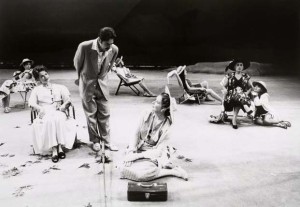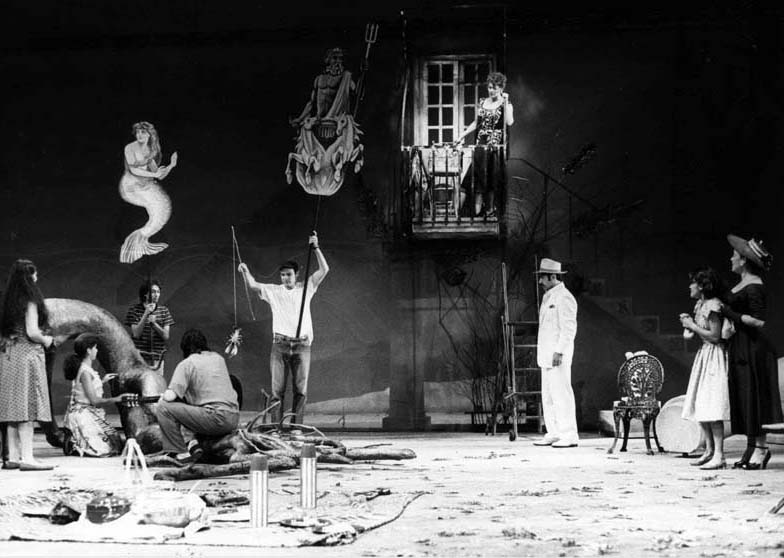Bowles’s In the Summer House is an absurd play, and she admirably proves the rule that some people do silly things at picnics.
The action begins with a lawn picnic at which characters with tenuous
relationships incessantly bicker. When Mr. Solares enters, bringing a picnic to Gertrude Eastman Cuevas, she is unenthusiastic. “I think I’ll stay here on the balcony,” she tells him and other friends, “Just spread yourselves on the lawn, and we’ll talk back and forth this way.” Dutifully, Solares serves spaghetti with meatballs. But when a plate is handed up to Gertrude, it drops on the head of Mrs. Lopez. There is much laughter. (Ha, ha!) Gertrude loves salads, so why she was offered spaghetti is perhaps another joke.
The conversation is disjointed – a series of unanswered questions such as, “Do you like Chop suey?” “You like the ocean?” “What is your attitude toward business?” Amidst the swirling banter, Solares asks Gertrude when they will be married. There is no answer. Gertrude is too distracted to be definitive, though she is adamant that the lawn be made tidy. “Mr. Solares,” she says, “can’t your servants organize this mess?” The short answer is no.

JoAnne Akalatis. In the Summer House (1993). Incidental music by Philip Glass. Lincoln Center, Vivian Beaumont Theatre. Gertrude Eastman Cuevas (Diane Weist), in the chair, chats with Mr. Solares (Jaimie Tirelli), and her mother Mrs. Constable (Frances Conroy).
The original 1953 production included incidental music is Jane Bowles’ husband, Paul Bowles. During the same period, he and James Schuyler collaborated on the absurdist A Picnic Cantata (1954). Philip Glass’ incidental music for the 1993 production includes “Mr. Solares’ Picnic,” which runs for 2:47 minutes.
Featured Image: JoAnne Akalatis. In the Summer House (1993). Scenic design by George Tsypin; Costume design by Ann Hould-Ward; and Incidental music by Philip Glass. Lincoln Center.
See Jane Bowles. In the Summer House. In My Sister’s Hand in Mine: The Collected Works of Jane Bowles. New York: The Ecco Press, 1953; James Schuyler and Paul Bowles. A Picnic Cantata: For Four Women’s Voices, Two Pianos and Percussion. 1954.

